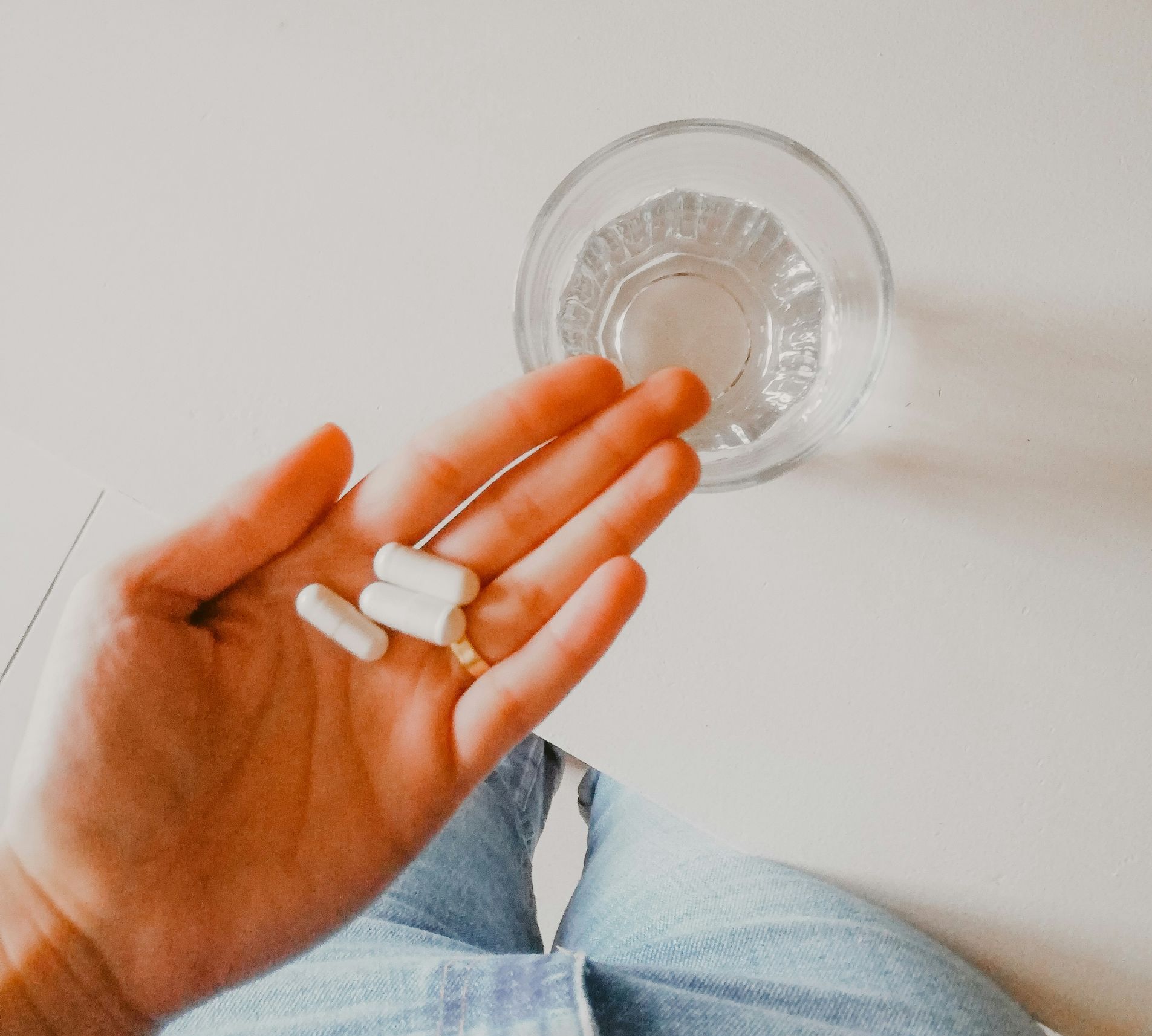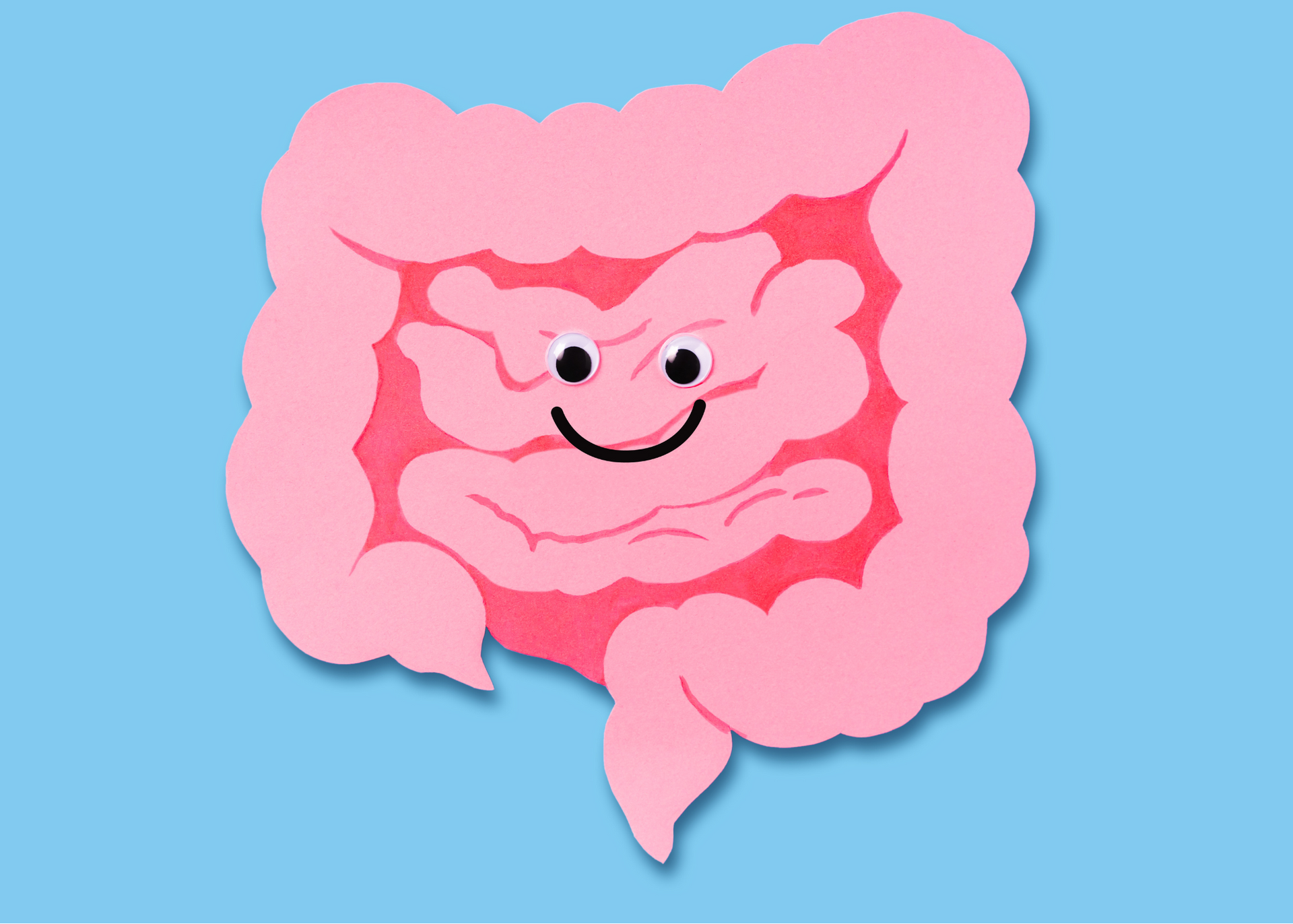Ashwagandha for PCOS: Everything You Need to Know

PCOS, or Polycystic Ovary Syndrome, is a hormonal disorder that affects millions of women, leaving them looking for much-needed relief.
For many women, it can take years to get a PCOS diagnosis.
And when they finally get the diagnosis, they’re usually met with even more disappointment.
The most common conventional method for managing PCOS is medication. Although medications can sometimes be helpful for managing symptoms of PCOS, they fail to address the root cause and can lead to even more issues long-term.
Fortunately, there are natural ways to manage PCOS. One promising remedy is the adaptogenic herb Ashwagandha.
In this article, we’ll cover:
- The basics of PCOS
- How PCOS impacts women
- What Ashwagandha is
- How Ashwagandha can be used to manage PCOS
- How to take Ashwagandha
- Potential risks and side effects of Ashwagandha
- How to holistically manage your PCOS
PCOS Basics
PCOS is a complex hormone and metabolic disorder that negatively affects the ovaries. It’s characterized by an imbalance in sex hormones, specifically higher levels of androgens (testosterone, DHT, DHEA, etc.) and irregular ovulation.
Common symptoms include irregular periods, acne, excessive hair growth on the face, chest and back, hair loss on the head, and fertility challenges.
Although the exact cause of PCOS is not fully understood, it’s likely the perfect storm of many factors like blood sugar dysregulation, inflammation, genetics, diet, and lifestyle factors.
How PCOS Impacts Women
If you’ve ever struggled with PCOS, or any other hormonal imbalance, you know just how much it impacts your quality of life.
Irregular menstrual cycles are a sign of infertility, a source of extreme emotional distress and a heartbreaking reality.
Excess androgens can cause acne and hair loss that can destroy your self-esteem.
Insulin resistance associated with PCOS can increase the risk of many diseases, including type 2 diabetes, and it can make weight loss close to impossible.
The worst part?
Many women with PCOS don't know they have it!
Most women have to see at least three medical professionals and spend over a year going to frustrating doctor's appointments before finally getting a diagnosis.
I see this time and time again in my practice.
Women come to me wanting to fix their irregular periods, stubborn acne, weight gain, and other frustrating symptoms that have been dismissed by their doctors.
They're relieved once they have a real answer for their symptoms, and even more relieved when I tell them we can put their PCOS into remission naturally.
If you have PCOS, one of the ways you can support your body is by incorporating the herb
Ashwagandha.

What is Ashwagandha?
Ashwagandha, also known as Withania somnifera, is an adaptogenic herb with a rich history in Ayurveda and traditional medicine.
It’s native to India and has been used for centuries to promote overall health and well-being in both men and women.
Ashwagandha contains more than 50 compounds that have different effects on the body, but it’s most commonly used for its adaptogenic properties.
Adaptogens are natural substances that help the body
adapt to stress and restore balance.
The Health Benefits of Ashwagandha for PCOS
Ashwagandha can play a role in supporting women with PCOS for many reasons.
Let’s break them down.
Stress Management
One of the standout features of Ashwagandha is its ability to alleviate stress. It works by regulating the body's stress response and reducing cortisol levels, the primary stress hormone.
Research shows that people who take ashwagandha experience improved mood, less anxiety, lower morning cortisol, a slower heart rate, and lower blood pressure.
Lowering stress levels can be particularly beneficial for women with PCOS, as stress can fuel the condition and exacerbate many of the associated symptoms.
Hormone Balance
Ashwagandha can play a crucial role in balancing hormones for women with PCOS by regulating the menstrual cycle, reducing androgen levels, and improving insulin sensitivity.
Women with PCOS are
more likely to have thyroid disorders and research shows ashwagandha can also support
thyroid hormone balance.
A happier thyroid means healthier hormones. Another promising benefit of ashwagandha that makes it a favorable natural remedy for PCOS.
Blood Sugar Regulation
Studies show ashwagandha can help lower blood sugar levels and decrease insulin resistance, two driving factors of PCOS. It does this by boosting insulin secretion and improving our muscle’s sensitivity to insulin.
Little known fact - stress plays a HUGE role in blood sugar control. Ashwagandha not only regulates blood sugar directly, but it also supports healthy cortisol levels, which in turn helps stabilize blood sugars even more.
Inflammation
There are many research studies showing ashwagandha’s anti-inflammatory effects by reducing oxidative stress.
Because inflammation is a key driver of PCOS, ashwagandha is a beneficial herb for this condition.
Lowering inflammation also makes it easier for us to lose weight, and weight loss itself can lead to
significant improvements in PCOS symptoms.
Fertility
Ashwagandha has traditionally been used in Ayurvedic medicine to improve sexual health and fertility in both men and women. It reduces stress and inflammation in the body and regulates hormones, supporting a healthy menstrual cycle and improving fertility outcomes in women with PCOS.
Because PCOS impacts women's hormones so significantly, poor sexual function and low sex drive are quite common.
Fortunately, studies show that regularly taking ashwagandha can improve measures of arousal, orgasm, and
sexual satisfaction in women.

How to Take Ashwaghanda
A variety of Ashwagandha dosages are used in research studies, but most studies point to around 600 mg per day for an effective dose. I typically recommend 300 mg twice per day to keep a steady amount in your system.
No maximum dose has been established for Ashwagandha, but research studies show up to 1250 mg per day is generally well tolerated. But more isn't necessarily better - there doesn't appear to be any added benefit to this larger dose.
Studies show Ashwagandha is effective taken both with and without food, but I recommend taking it with food to avoid an upset stomach.
It should be taken regularly for at least 8-12 weeks to see noticeable effects, and there is little evidence to support long-term use so I don't recommend staying on it indefinitely.
Are there risks to taking Ashwagandha?
While Ashwagandha is generally safe, some individuals may experience mild side effects such as digestive discomfort or drowsiness.
And it's important to note, Ashwagandha isn't for everyone.
Please keep the following safety considerations in mind:
- Ashwagandha is not recommended during pregnancy or while breastfeeding.
- Ashwagandha is not recommended prior to surgery.
- Ashwagandha is not recommended for women with autoimmune conditions or hyperthyroidism.
- Ashwagandha may interact with some medications, including medications for diabetes and high blood pressure, immunosuppressants, sedatives, and anti-seizure medications.
Always consult with a healthcare professional you trust before starting any new supplement, especially if you are pregnant, nursing, or taking medications.
To minimize risks, choose a high-quality supplement that is
third-party tested for safety, purity and potency. Working with a
healthcare professional can help tailor the dosage to your specific needs.
Holistic Approach to PCOS Management
It’s important to remember that you can’t supplement your way out of a crappy diet and unhealthy lifestyle.
You have to start with a solid foundation - a balanced diet, the right types of exercise, high-quality sleep and stress management.
Supplements are just that, supplemental. If you have a solid foundation, they can be incredibly effective. If you don’t, they’re going to be a waste of time and money.
A holistic approach to PCOS management includes:
- Diet: Eat a hormone balancing diet, focusing on whole foods and managing carb intake.
- Physical Activity: Prioritize regular exercise, especially strength training, to improve insulin sensitivity and regulate blood sugar.
- Stress Management: Incorporate stress-reducing techniques like meditation, yoga, or mindfulness into your daily routine.
- Sleep: Prioritize quality sleep to regulate hormones and reduce stress.
Next Steps for PCOS Remission
PCOS is a complex and challenging condition, but there are natural ways to manage it. Ashwagandha offers promising benefits for regulating hormone imbalances, managing blood sugar, reducing inflammation, and easing stress for women with PCOS.
Always consult with a healthcare professional before introducing new supplements, and choose high-quality, third-party tested products to ensure safety and maximize the benefits of Ashwagandha.
If you’re curious about using supplements like Ashwagandha or managing your PCOS, apply to
work with me. We’ll conduct a comprehensive analysis of your health, symptoms and goals, and craft a personalized plan to get your hormones in check.
Ashwagandha is one great tool for managing PCOS, but don’t overlook the fundamentals.
If you want to learn more about hormone-friendly diet and lifestyle practices, check out my
Restore Program to learn the essentials. You’ll learn what and when to eat, strategies for managing stress, and easy ways to improve your lifestyle, all with hormone balance in mind.
Continue Reading















